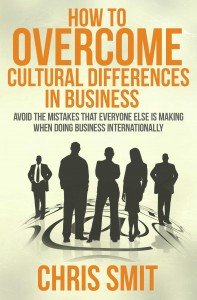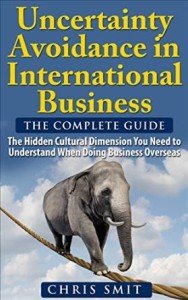The Impact of Social Media on Culture or Social Media and Culture
This is not a post about which Social Media network is more popular in which country. No, rather than that, it’s an attempt to better understand what the impact of social media on culture is. . And why. In other words, social media and culture. Understanding why Social Media in Different Cultures is used differently is probably the most important for people working internationally (with Social Media and culture) and wanting to understand the impact of social media on culture.
. And why. In other words, social media and culture. Understanding why Social Media in Different Cultures is used differently is probably the most important for people working internationally (with Social Media and culture) and wanting to understand the impact of social media on culture.
Rather than looking at the whole world, I’ll keep my focus on a couple of countries (USA, Belgium, the Netherlands). Also in these countries, and other countries, social media and culture go hand in hand.
Social Media and Culture Matters
Which factors play a role in predicting specific behavior with Social Media in different cultures? For this, I’d like to refer to the model of Professor Geert Hofstede. You can read more on this here.
Adoption Speed
The first thing I’d like to tackle in terms of Culture is the Adoption Speed of Social Media and culture between the three countries (USA, Belgium & the Netherlands).
Being the first has advantages over being later. Being first gives you the opportunity to… well, be the first! You can dominate the market, try new things which could be a hit (e.g. Twitter & Pinterest).
The advantage of being later is that you can avoid the pitfalls that the one before you made and you won’t have to deal with technical glitches in any of these platforms.
In terms of the Adoption Speed of Social Media in different cultures, the USA is usually the first. Followed by the Netherlands (2-3 years after the US), followed by Belgium (3-5 years after the Netherlands). So the impact of social media on culture in certain countries is delayed and so are the effects on society.
The cultural dimension that plays a role in the Netherlands topping the list of Twitter users and use (corrected for population) is the Process orientation (or a low score on the Goal orientation dimension). The Dutch are consensus-seekers and in order to reach consensus, you need to talk (and talk and talk) and share what’s on your mind (Consensus is not the same as Compromise!). Hence the love for Twitter in the Netherlands.
Adoption in general (so also for Social Media) of new “things” largely hinges on Uncertainty Avoidance. Low scoring countries adapt faster to new technologies than higher scoring cultures. The USA has a relatively low score on this dimension, followed by the Netherlands with Belgium having a relatively very high score. So when it comes to the impact of social media on culture, it is best to “attach” the “new thing” to something that is already familiar in high scoring countries on this fourth dimension.
How do we do Business?
The Belgians conduct their business in a different way than the Dutch and Americans (who are more similar in this aspect). In Belgium, there is more of a business culture based on relationships. This is one of the reasons why the penetration of e.g. LinkedIn & Twitter has not been as fast as the US & Netherlands. A common remark I hear from Belgians is “why would I need LinkedIn if I know the person already?“.
The Belgians prefer to do business with people whom they know (or are referred to) as opposed to doing business with total strangers. Business with total strangers takes by far longer to move forward than in the other two countries.
Again, this can mainly be attributed to Uncertainty Avoidance: “I don’t know you and need to get to know you first before doing business.”
Use of Social Media at Work
Here the differences will definitely differ from industry to industry. Tech-savvy companies will allow their staff to use Social Media in the workplace.
Still, there are profound differences. In the US and the Netherlands, over 75% of the HR professionals use LinkedIn to find new people. While in Belgium that percentage is around 40%.
Once again this is Uncertainty Avoidance.
Also here the impact on social media on culture will differ per culture; A Dutch HR manager looking for Belgian employees should realize that the pool he’s fishing in is simply smaller.
In research I’ve done myself, it showed that in Belgium the majority of the people were not allowed to use Social Media privately at the workplace (they still did, using their own smartphone). This can be attributed to the relatively high score on Hierarchy, compared to the Netherlands and the USA.
Social Factors (not Cultural)
One very important factor to consider is Language. Most use of Social Media is in English (American English!). If that’s a problem for you, then using many Social Media platforms will be too.
Using Twitter as an example: you cannot perform searches within Twitter only for Belgium. You can search within the Dutch language (the Dutch and part of the Belgians share the same language), but you cannot limit your search to Belgium only.
This is a typical example of American “dominance“, which I attribute to their relatively high score on Masculinity. Within the US there is relatively very little awareness of different cultures outside the US. Therefore Europe is often seen as one culture.
What did I miss? Leave your comments at the end of this post!
Get a Taste of How Chris Presents, Watch his TEDx Talk
 Call Direct: +32476524957
Call Direct: +32476524957
 European Office (Paris) Whatsapp: +32476524957
European Office (Paris) Whatsapp: +32476524957
The Americas (USA; Atlanta, GA; también en Español): +1 678 301 8369
Book Chris Smit as a Speaker
If you're looking for an Engaging, Exciting, and Interactive speaker on the subject of Intercultural Management & Awareness you came to the right place.
Chris has spoken at hundreds of events and to thousands of people on the subject of Cultural Diversity & Cultural Competence.
This is What Others Say About Chris:
- “Very Interactive and Engaging”
- “In little time he knew how to get the audience inspired and connected to his story”
- “His ability to make large groups of participants quickly and adequately aware of the huge impact of cultural differences is excellent”
- “Chris is a dedicated and inspirational professional”
In addition, his presentations can cover specific topics cultural topics, or generally on Cultural differences.
Presentations can vary anywhere from 20 minutes to 2 hours and are given World Wide.
Book Chris now by simply sending an email. Click here to do so.
Read more about what Chris can do for you.
- Percentage of People Rating a Presentation as Excellent 86%
- Rating the Presentation as Practical 89%
- Applicability of Chris' presentation 90%
About Peter van der Lende

Peter has joined forces with Culture Matters.
Because he has years and years of international business development experience joining forces therefore only seemed logical.
Being born and raised in the Netherlands, he has lived in more than 9 countries of which most were in Latin America.
He currently lives in Atlanta, Georgia (USA) with his family.
You can find out more at https://expand360.com/
Or find out what Peter can do for you here.
- 177 Mark Steinberg - 22 February 2024
- Japanese versus Western Culture - 24 January 2024
- 176 James Kennedy on Dutch culture - 15 September 2023


 Call Direct: +32476524957
Call Direct: +32476524957 European Office (Paris) Whatsapp: +32476524957
European Office (Paris) Whatsapp: +32476524957


Three years ago, I lived and worked in Philippines for three months. I still have twenty odd people on my Facebook account from Philippines. Interestingly, I would be stopped in an elevator (I worked with a small account of thirty people in a 500+ employees company that provides outsource call centre facilities to various US and UK companies) by strangers asking me if I could be added to their Facebook friends. Majority of people I met had 1000+ friends on their private Facebook account. I never really looked into finding out more information on how Facebook is being used in Asia, however I think a need to have many friends on Facebook is very much related to the importance of one’s status in society in Philippines (Philippines score very high on that). Another interesting fact is that reading through people’s daily updates, I would very often come across various opinions and complaints addressed to a person or group of people who I only assume were on that person’s Facebook account and had a possibility to read those notes. Could it be that Facebook acts like ‘a third person’ in this very indirect culture? If I ever decided to go back to studies, I would definitely like to explore this more..
Hi Akville,
Thanks for adding your comment.
Spot on in terms of culture and the Philipine importance of Status.
May I ask where you are from yourself?
I was drawn to this post by the title. Have you done research with sub-populations within a country, either by socioeconomic or ethnicity grouping?
Hi Melvin,
Thanks for your comment and question.
No I haven’t done any sub-population/ethnic grouping research.
My website/blog and expertise is on IntErcultural differences. Not on IntrAcultural differences.
I’m sure (very sure) that there are InterAcultural differences within cultures and ethnic groups.
The thing is, they don’t really matter if you’re not from that culture.
Meaning that for a German, it does not matter (really it doesn’t) when he’s doing business with an American, if that American is from New York or California or Black or white. For the German an American is an American is an American (and vice versa as well of course).
Cheers Chris
Yvan Razafindratandra • It would be interesting to extend this study to such cases as emerging countries or some African countries, which do not share the western culture.
Hello,
I am currently writing my end of study bachelor thesis about the role of social media for recruitment and how this is influenced by cultural differences. I read your article and found it very interesting and useful. I was wondering if you had any further studies or literature regarding cultures and social media? I would greatly appreciate any sources you can provide for me. I will continue to follow your blog as I find it personally, extremely interesting. Thank you !
Kind Regards,
Charmagne
Hi Charmagne,
Thank you for your comment!
I do not have any further studies on this. Sorry.
However if you would find some yourself, I would really appreciate it if you could come back to my site and post your findings!
Thanks!